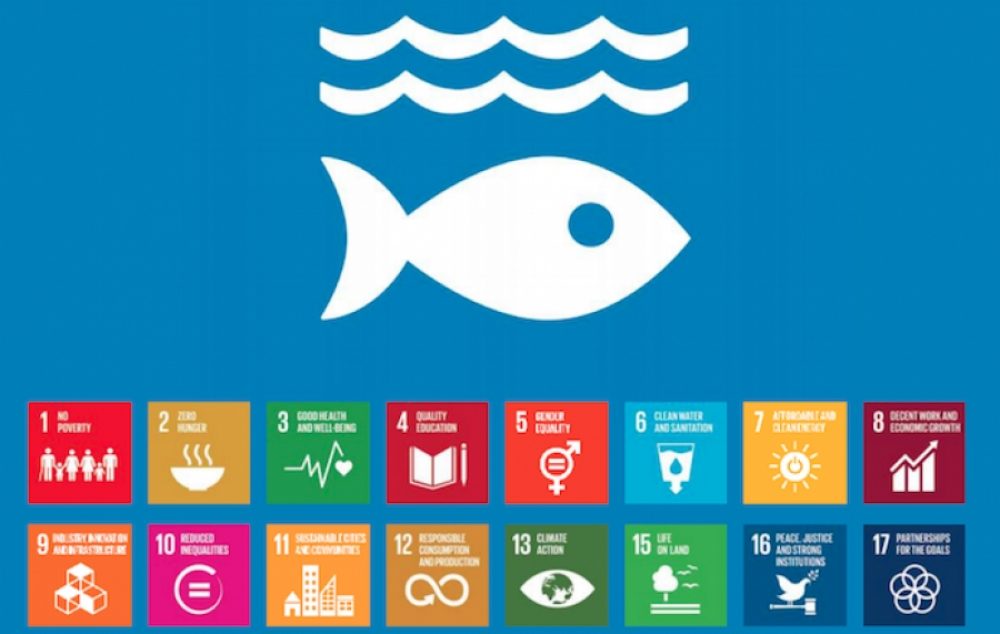In order to provide policy pathways to promote Sustainable Development Goal (SDG) 14: Life Below Water: to conserve and sustainably use the ocean, seas, and marine resources, APRU has launched a cluster research project identifying social-ecological relationships to support the SDGs; outlining the institutional cooperation needed to enact appropriate policy, and evaluating the effectiveness and feasibility of specific options to reduce risks of climate change impacts.
Led by Gerald Singh (University of British Columbia), Yoshitaka Ota (University of Washington), and William Cheung (University of British Columbia), the project will evaluate the economic, social, governance, and environmental conditions that promote sustainable oceans throughout the Pacific Rim. It entails a survey, a literature review of institutes, and a workshop.
The project reflectsAPRU’s voluntary commitment to SDG14 in the form of raising awareness and addressing major challenges affecting the health of the Pacific Ocean and its marine and coastal resources.
“The project emphasizes the need for a global and science-policy perspective in regional and international ocean governance,” Ota explained.
“It will reach out to government experts for their input, and outcomes will be disseminated widely to policymakers across the region,” he added.
The cluster project is being built on the work of the Nippon Foundation Nereus Program, which currently brings together 17 institutions globally, including APRU members, in order to monitor and understand the frequent and intertwined fluctuations in the environmental and socio-political states of the ocean.
The APEC Ocean and Fisheries Working Group (OFWG)has agreed for the cluster project’s questionnaire to be shared with government officials and marine experts participating in the OFWG.
On the list with organization that are highly supportive of the project is also the China Institute for Marine Affairs (CIMA) under China’s State Oceanic Administration.
“Social and environmental sustainability challenges relating to our oceans are of urgent concern for all human beings, and SDGs, in particular SDG 14, offer an overall framework for global actions addressing these challenges,” said Dr. ZHU Xuan of CIMA.
“The project will harness the research expertise from academic experts across the region, and we are keen to explore how the project’s results can support our work,” she added.
In 2017 the United Nations launched an online register for voluntary commitments made by UN Member States, businesses and civil society organizations, that can meaningfully contribute to the implementation of SDG 14.
Among SDG 14’s near-term milestones to be reached by 2020 are the conservation of at least 10% of coastal and marine areas, as well as the elimination of all subsidies that contribute to illegal, unreported, and unregulated fishing.
APRU has so far implemented several initiatives with the aim of supporting the SDG14, including an international case competition in partnership with The New York Times to raise awareness on the impact of climate change in the Pacific Ocean by reaching out to over two million students in the Pacific Rim.
APRU has actively engaged with UN initiatives and APEC working groups, committing resources and contributing research expertise to address key challenges of the Pacific Ocean.

